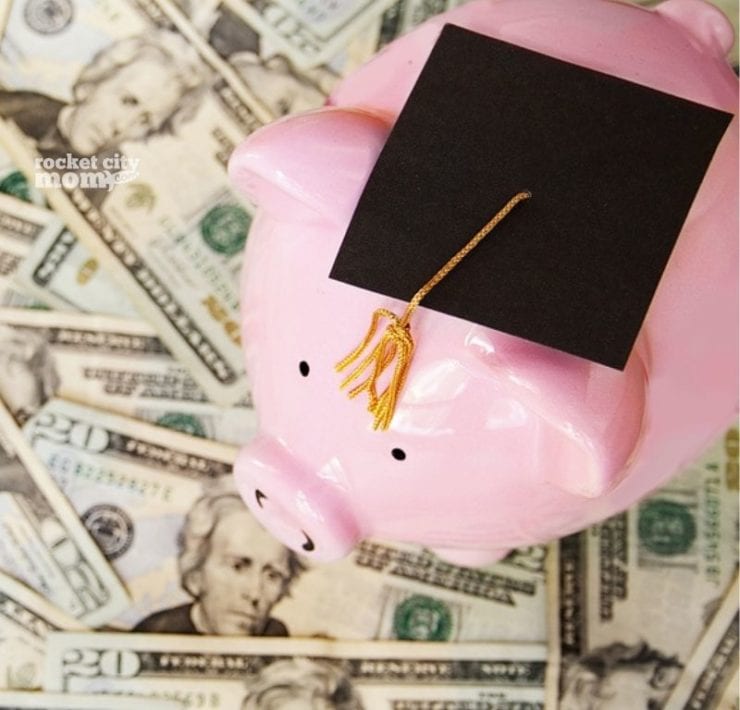Ask the Expert: Budgeting for Baby
Ideally, what kinds of things can a couple do to be financially prepared BEFORE they have a baby?
I think that the saying of “you’ll never truly be able to afford a child” is somewhat true but there are several things that you can do in order to help weather the storm. One way to go about budgeting for baby is to take a look at your emergency fund that you have in place. This emergency fund should have a balance equal to 3 to 6 months of your household expenditures. This would also be a good opportunity to take a look at where your money is actually being spent each month. You will definitely find that some of the monthly expenditures are fixed expenses or non-discretionary items such as your mortgage payment/rent, utility bills, cell phone bills etc. However, while looking at your monthly expenditures you might be able to find some discretionary items that could be cut back on or completely eliminated, like expensive dinners, vacations, designer clothes and other items. The amount of discretionary expenditures that you can live without can be used to help cover the added costs of a child.
When it boils down to it there are really only two ways to increase net income – the money left over after all bills are paid. One way is to increase revenue (increase your income) which is sometimes not possible) and the second is to cut expenses (buy from the sales rack). Bottom line is this is a great time to take a look at where you funds are going and how much room you are going to have in your budget when you add a child.
What kinds of surprises might happen to my household budget after having a baby?
I think that if you are truly tracking your monthly expenses after you have a child you will be surprised at the different costs that come with your new bundle of joy – this can be overwhelming at first. Some of the obvious ones are diapers, formula, clothes and furniture for the baby’s room. Some of the other expenses that are sometimes not thought of are the increase to your health insurance premium now that you will need family coverage, the amount of money that you will need to start putting away in the child’s college savings plan, or maybe even the cost of increasing the amount of life insurance that you have in place on each other.
A personal example is that we found out that my youngest daughter was lactose intolerant so we had to start buying special formula that cost 3 to 4 times the cost of regular formula which we obviously could not foresee. It ended up being almost $300 more per month. The small cost of doctors’ visits for the baby and mom can add up over the first year or two. I hope that these insights don’t scare you away because all of the costs are well worth the joy and love you feel from having a baby. After the surprises happen, which they will, make sure you account for them in the months ahead if they will become reoccurring costs. And keep in mind budgeting for baby soon turns into budgeting for toddlers, then school-aged children, then pre-teens.
What are some expenditures that parents typically underspend on when raising a child?
You might have already heard this and if you have you need to hear it again because I think that one area that is very important to make sure you don’t underspend on is saving for your child’s college education. In fact, I’m not sure if the average family can actually overfund a child’s college education due to the rising costs. According to information provided by The College Board, “Trends in College Pricing” the cost of four years of Public College including tuition, fees, and room and board will be around $187,136 in 18 years. Even further, if you want your child to go to that prestigious Private College that is going to run you around $419,052 18 years down the road.
One very important thing make note of is the importance of starting to save as early as possible. For example, if you have 2 families with $2500 to start a 529 College Savings account and that both plan to save $100 per month for their child to go to college and one starts day one, that allows them to save for 18 years and the other family only waits 3 years which will give them 15 years to save. The family that saves for 18 years will have $52,105 and the other family will have only have $39,003 at the end of the 15 years. This is assuming a 7% average annual return. That is a pretty staggering difference in my opinion considering the difference in contributions over that 3 years of waiting is only $3600.
The good thing is that with a little planning and discipline all of these things can be done and have been done by millions of parents before you. Good luck and enjoy your new baby.
 ABOUT THE EXPERT: John Pylant is a Financial Advisor with Progress Financial Services. With over 13 years of experience in investments and insurance, John also holds the CFP® (Certified Financial Planner) designation where he helps clients complete a comprehensive financial plan to help provide a road map for their financial future. Born and raised in Huntsville and Decatur area, he graduated from the University of Alabama with a Finance degree. He is happily married with 3 daughters. He enjoys hunting, playing golf and coaching his daughter’s various sports teams, is actively involved in church and serves as the President of the Morgan County Alabama Alumni Association. Drawing from his years of experience, he can provide professional guidance for your families’ investment needs for education, retirement and more.
ABOUT THE EXPERT: John Pylant is a Financial Advisor with Progress Financial Services. With over 13 years of experience in investments and insurance, John also holds the CFP® (Certified Financial Planner) designation where he helps clients complete a comprehensive financial plan to help provide a road map for their financial future. Born and raised in Huntsville and Decatur area, he graduated from the University of Alabama with a Finance degree. He is happily married with 3 daughters. He enjoys hunting, playing golf and coaching his daughter’s various sports teams, is actively involved in church and serves as the President of the Morgan County Alabama Alumni Association. Drawing from his years of experience, he can provide professional guidance for your families’ investment needs for education, retirement and more.
As a hyper-local website focused on all aspects of parenting in and around Morgan County, and the Tennessee Valley, River City Mom occasionally asks local parents to submit their stories for publication. This is part of our continual effort to represent varied viewpoints and experiences on our site. However, these articles should not be seen as necessarily expressing the views of Rocket City Mom Media Group, LLC.









